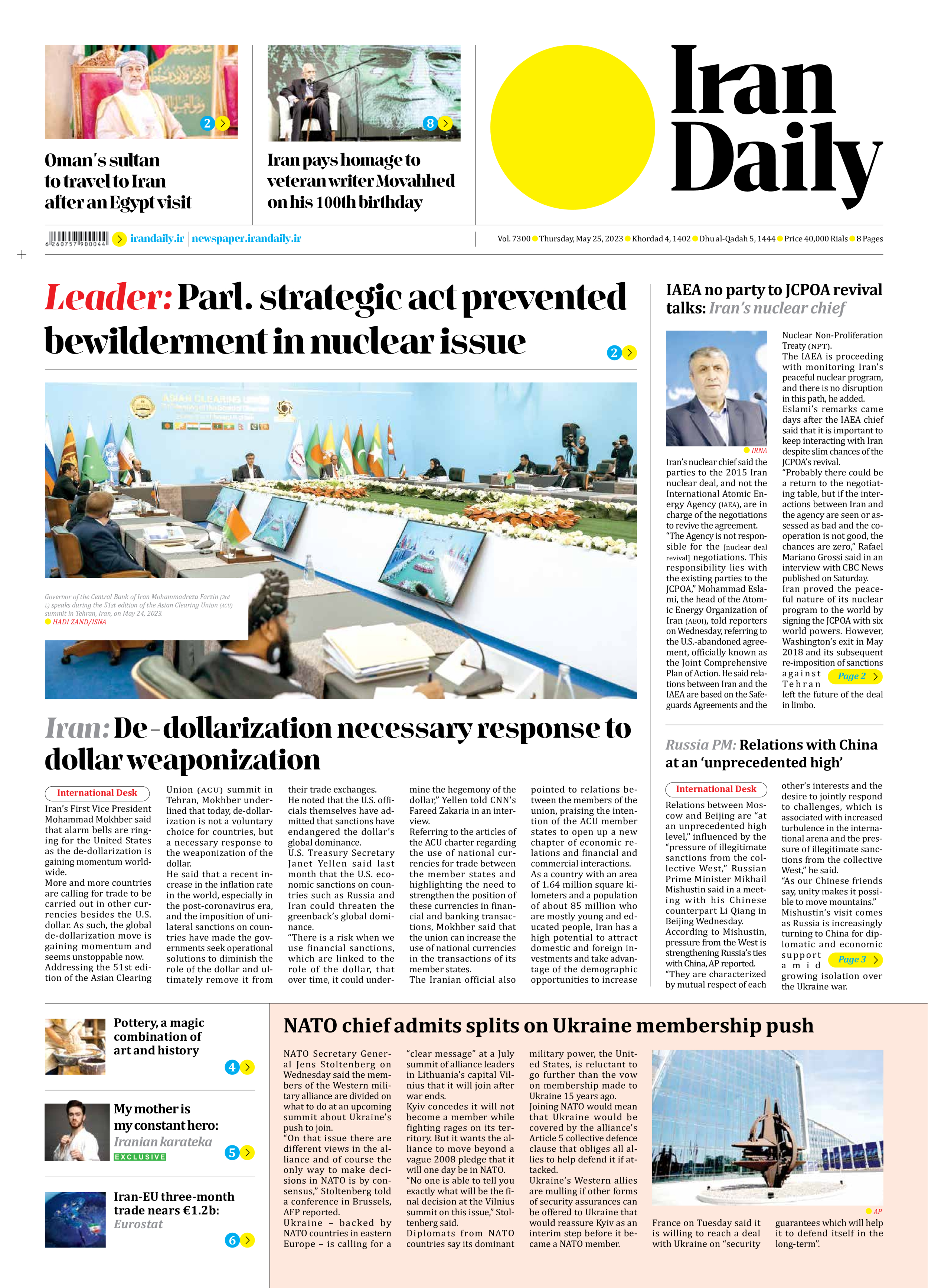
IAEA no party to JCPOA revival talks: Iran’s nuclear chief
Iran’s nuclear chief said the parties to the 2015 Iran nuclear deal, and not the International Atomic Energy Agency (IAEA), are in charge of the negotiations to revive the agreement.
“The Agency is not responsible for the [nuclear deal revival] negotiations. This responsibility lies with the existing parties to the JCPOA,” Mohammad Eslami, the head of the Atomic Energy Organization of Iran (AEOI), told reporters on Wednesday, referring to the U.S.-abandoned agreement, officially known as the Joint Comprehensive Plan of Action. He said relations between Iran and the IAEA are based on the Safeguards Agreements and the Nuclear Non-Proliferation Treaty (NPT).
The IAEA is proceeding with monitoring Iran’s peaceful nuclear program, and there is no disruption in this path, he added.
Eslami’s remarks came days after the IAEA chief said that it is important to keep interacting with Iran despite slim chances of the JCPOA’s revival.
“Probably there could be a return to the negotiating table, but if the interactions between Iran and the agency are seen or assessed as bad and the cooperation is not good, the chances are zero,” Rafael Mariano Grossi said in an interview with CBC News published on Saturday.
Iran proved the peaceful nature of its nuclear program to the world by signing the JCPOA with six world powers. However, Washington’s exit in May 2018 and its subsequent re-imposition of sanctions against Tehran left the future of the deal in limbo.
Negotiations kicked off in the Austrian capital city of Vienna in April 2021, with the intention of removing anti-Iran sanctions and examining the United States’ seriousness in rejoining the accord.
The talks, however, have been at a standstill since August 2022 due to Washington’s insistence on not removing all the sanctions and its failure to offer necessary guarantees that it will not abandon the deal again.
Eslami also rejected a report by Bloomberg claiming that the number of examinations of Iran’s nuclear program fell by 10% in 2022 after Tehran decided to turn off the monitoring cameras installed by the IAEA at the country’s nuclear sites.
In a statement issued in June 2022, the AEOI announced plans to turn off some surveillance cameras of the IAEA, whose operation is deemed beyond Iran’s obligations under the UN agency’s Safeguards Agreement.
The Iranian nuclear chief said a month later that the IAEA monitoring cameras will remain turned off until the JCPOA is fully restored.







